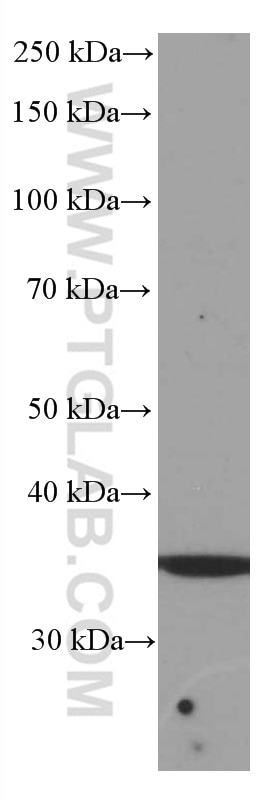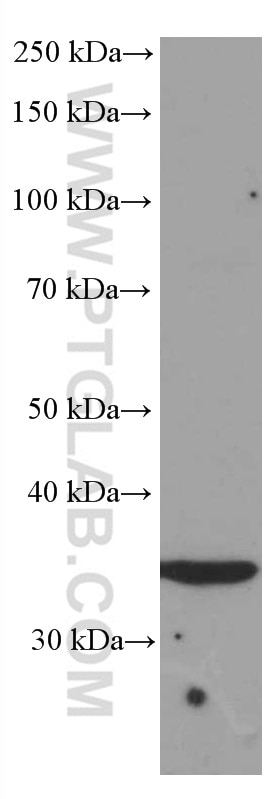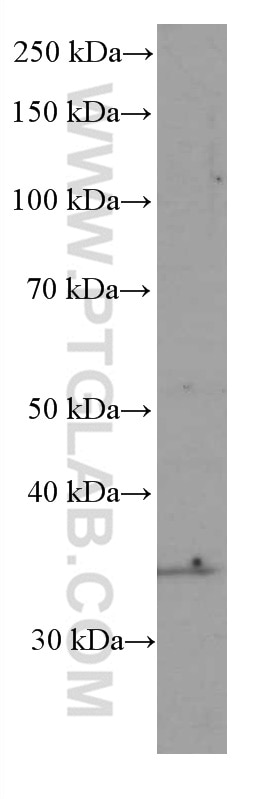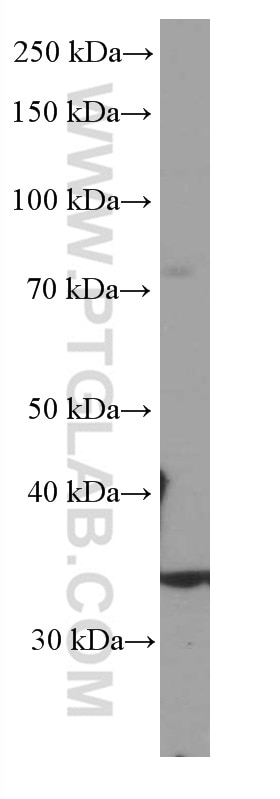- Phare
- Validé par KD/KO
Anticorps Monoclonal anti-SIRT4
SIRT4 Monoclonal Antibody for WB, Indirect ELISA
Hôte / Isotype
Mouse / IgG1
Réactivité testée
Humain
Applications
WB, Indirect ELISA
Conjugaison
Non conjugué
CloneNo.
1D5A2
N° de cat : 66543-1-PBS
Synonymes
Galerie de données de validation
Informations sur le produit
66543-1-PBS cible SIRT4 dans les applications de WB, Indirect ELISA et montre une réactivité avec des échantillons Humain
| Réactivité | Humain |
| Hôte / Isotype | Mouse / IgG1 |
| Clonalité | Monoclonal |
| Type | Anticorps |
| Immunogène | SIRT4 Protéine recombinante Ag17347 |
| Nom complet | sirtuin (silent mating type information regulation 2 homolog) 4 (S. cerevisiae) |
| Masse moléculaire calculée | 314 aa, 35 kDa |
| Poids moléculaire observé | 35 kDa |
| Numéro d’acquisition GenBank | BC109319 |
| Symbole du gène | SIRT4 |
| Identification du gène (NCBI) | 23409 |
| Conjugaison | Non conjugué |
| Forme | Liquide |
| Méthode de purification | Purification par protéine A |
| Tampon de stockage | PBS only |
| Conditions de stockage | Store at -80°C. 20ul contiennent 0,1% de BSA. |
Informations générales
SIRT4, also named as NAD-dependent protein lipoamidase sirtuin-4, mitochondria, is a 314 amino acid protein, which belongs to the sirtuin family. Class II subfamily. SIRT4 is detected in vascular smooth muscle and striated muscle. SIRT4 is detected in insulin-producing beta-cells in pancreas islets of Langerhans. SIRT4 Acts as NAD-dependent protein lipoamidase, ADP-ribosyl transferase and deacetylase. It catalyzes more efficiently removal of lipoyl- and biotinyl- than acetyl-lysine modifications and inhibits the pyruvate dehydrogenase complex (PDH) activity via the enzymatic hydrolysis of the lipoamide cofactor from the E2 component, DLAT, in a phosphorylation-independent manner. SIRT4 expression is down-regulated in a number of cancers, while overexpression reduces cell proliferation, transformation, and tumor development.









